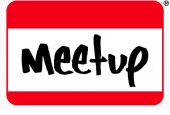For many emerging artists today, “partners” has come to be a lot less about traditional conduits to the masses – i.e., terrestrial media and, most importantly, record companies – than about Internet and mobile-based allies and services. This is due in part to the inability of the label pool to absorb the torrent of acts now spilling onto the music scene, and also because an increasing number of artists see digital media/technology as a viable alternative to relying on the industry machine, especially in view of the evident difficulties various high-profile record companies have had adapting to life on the digital frontier.
In this regard, some people in the industry no longer see it as the manager’s responsibility to be concerned, short term or long term, with actively trying to get their client signed to a label. For them, the bugle sounds not as a call to parlay an act’s assets into a label deal but to storm the market by continually building the currency of the brand and an ensuing direct revenue stream. It is instructive to look at what might underlie such reasoning.
It could be founded in the belief that an artist’s brand today can be better built, and faster, going it alone. To me, the truth of that really depends on the particular label. Certainly, many acclimated poorly to a fast-changing landscape during the Web’s emergent period. Yet, others adapted reasonably well, and some that floundered eventually got their footing. Labels born in the digital age can also be some of the most cutting edge when it comes to branding and marketing. A label that really gets the whole digital thing could be a huge advantage for an artist (provided they are the right fit in other important ways), especially when you factor in all the other things a record company potentially brings to the table.
It could also be based, in part at least, on the notion that a direct revenue stream is always preferable to the indirect. In other words, because the middleman can be eliminated he should be eliminated. As I show more than once in my upcoming book, it is not always the case. Having the right party as a component in the revenue chain can lead to a much bigger pie for all to share.
It is possible, too, that it might be rooted in a “build it and they will come” mentality around getting signed, the philosophy being that the right label will come knocking at the right time with the right deal once the brand is well established. The problem with this is that, even if the brand should ever reach critical mass, the field of eligible suitors will not be what it could have been had there been a concerted search campaign in place. More choices creates more leverage, and that means a better chance of landing that great deal with a top candidate.
It might even have its origins in a particularly bad experience the manager once had with a label, perhaps as an employee of the company or when acting in some other capacity in the industry.
Whatever the case, implicit in the “forget the label” reasoning is an assumption that the artist is on the same page or, if they aren’t, that the manager knows best. Now, the artist may well be in agreement. But even so, how many actually put enough thought and research into the whole label issue before arriving at that place, carefully weighing all the pros and cons?
I don’t get why a manager, or an emerging artist for that matter, as an article of faith would reject the whole label thing. This is, after all, a critical decision related to career direction that has all sorts of ramifications. It has to be made by an artist when they are up to the task. Not all are prepared adequately for it, and a responsible artist personal manager will refrain from pushing his client too hard too soon to adopt his philosophy around labels or, conversely, from deferring unduly to the artist who may be naive in the matter.
If I were an artist shopping for a manager, I’d consider it a real plus to have one on board who is versed in business development. But, I’d also want somebody with an open mind who would insist on a level-headed discussion around the whole subject of labels, with everything laid out on the table so that each party understands where the other is coming from and just what is at stake.





